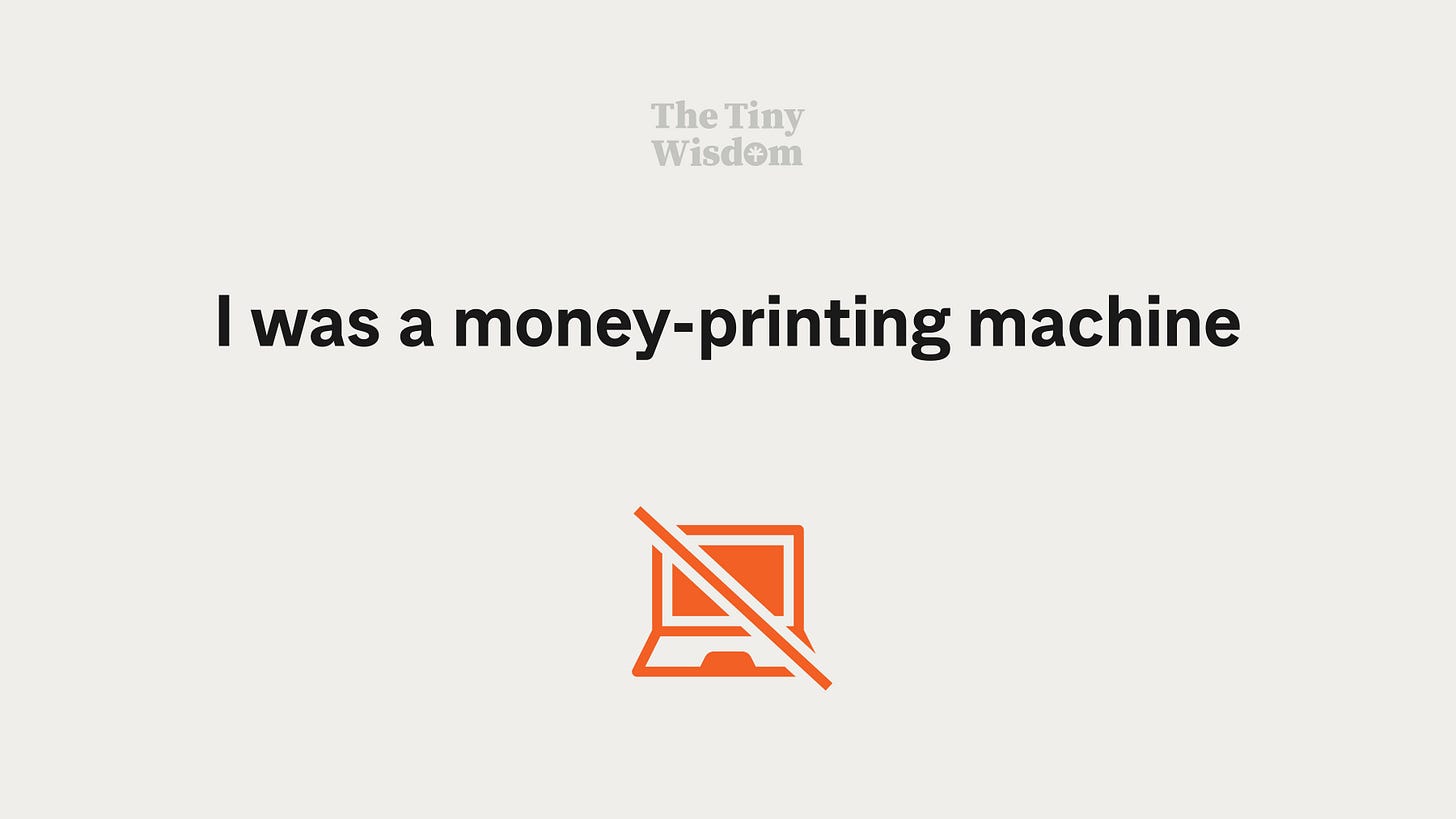I was a money-printing machine
For years, I lived like a money-printing machine.
Each morning started early, with long and monotonous commutes through traffic and crowded trains that set the tone for another tiring day—at my desk, the hours blurred by in meetings and working on tasks that seldom made sense.
When the day ended, another commute awaited, leaving me with just enough energy to eat, clean up, and sleep before repeating it all over again.
But I never questioned the routine. It felt normal for people like me: keep working, keep producing, and hope that “one day,” real life might begin. But that “one day” never came.
Then something shifted one week. A colleague became seriously ill. The company did what they could, and for a time, we had hopes that he would recover. But he eventually passed away.
We mourned for minutes. After the announcement, work resumed as usual, and that caught me by surprise. How quickly everything returned to normal made me question the actual place work held in my life and how little space there was to process loss.
I learned that even when the company had done its best, such as paying the hospital bills, and continued to send him his salary during his absence, which I genuinely appreciate and respect, at the end of the day, it's still a business. It took only minutes for business to return to normal.
As a result of this experience, I began to reflect on my life at work.
I saw my own routine shaped by invisible expectations, realised how easily anyone could be replaced, and noticed how work had quietly become the centre of my world—even though my heart was never truly in it.
I began to detach, quietly and gradually, almost like the first hint of spring after a long winter. I approached work differently since that day.
I stopped saying yes to everything. I let go of obligations that drained me and learned to say “no,” gently but firmly, to what didn’t serve me. I asked for projects that piqued my curiosity, and it made work feel lighter. Monday mornings mattered less. My time gradually became my own again.
At times when work got stressful, I left my stress at the office. Some people are more passionate about their jobs, and I’m not. I learned that we’re all just trying to do our jobs; there’s no sense in carrying grudges or letting work take over my emotions.
Of course, I stayed professional. I still did my job, but I stopped letting work define who I am. I do what’s needed, but I no longer devote my whole self to it. It’s just a job.
With more space in my head and more time in my hand, curiosity returned. I tried new things, explored new places, and had deeper conversations. I met people and made genuine connections. Some challenged me, some helped me grow, and some made me laugh. And that was how life began showing me fresh perspectives.
At the same time, I learned it was okay to walk away from relationships that left me feeling small or conflicted. For a while, I tried to help, change people, or even change myself. But I realised that not everyone wants to grow—some just don't want to get left behind. Hence, they try to keep us back. Accepting this truth allowed me to let go.
Letting go of those frustrations left space for better questions. My head felt clearer than ever because I finally had the space to reflect. I found myself asking, “What do I want to do with my life? How do I want to live my life?”
The answers came slowly, but they came eventually.
The brief mourning and abrupt return to business after my colleague’s passing made me rethink the value and pace of life.
I am not saying that you should quit your job right now and start travelling the world. Or call your boss and tell him to go f*** himself. That's unrealistic, and it would only have a good ending in the movies.
Instead, let work be just one part of your story, not its entire meaning. Behind all the targets and routines lies a real human being, deserving of laughter, connection, and rest.
You don't have to be productive all the time.
And if you ever lose track of who you are or what matters most to you, give yourself permission to slow down, question, and choose differently. Maybe it’s time to design a life that feels more like yours. The world won’t slow down for us, but we can choose to move at our own pace.
No path is easy, but the ones you choose for yourself are always worth walking. You don't need anyone's permission to live the life you want.
Because you’re not just a money printing machine, are you?
I hope you find this insightful. Remember:
It's not going to be easy,
But it's not impossible.
Your friend,
Brian.



